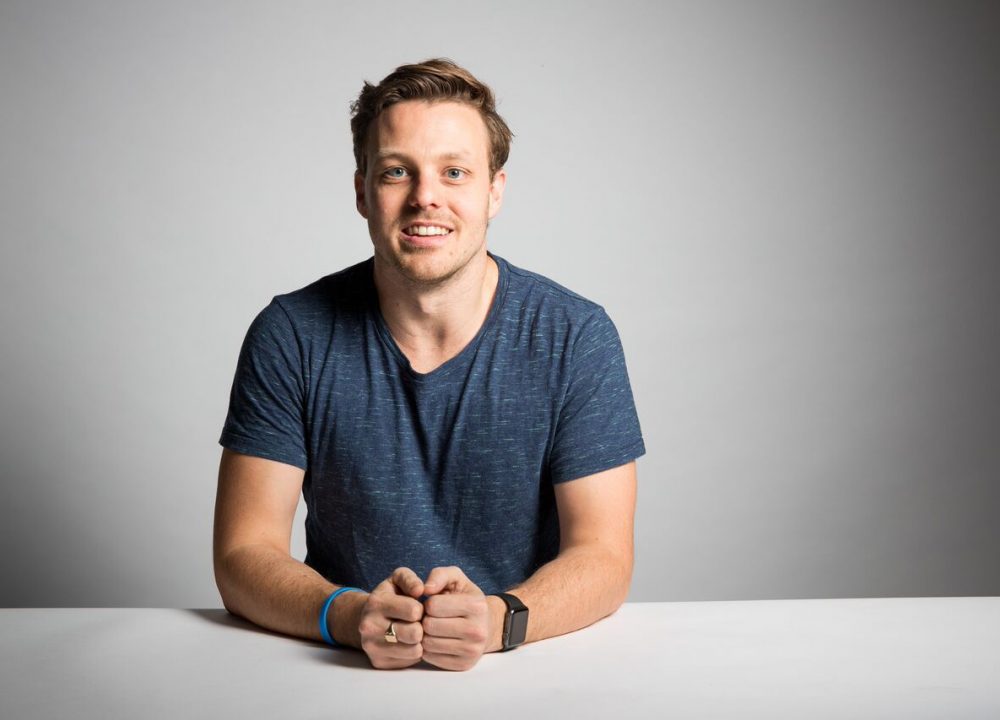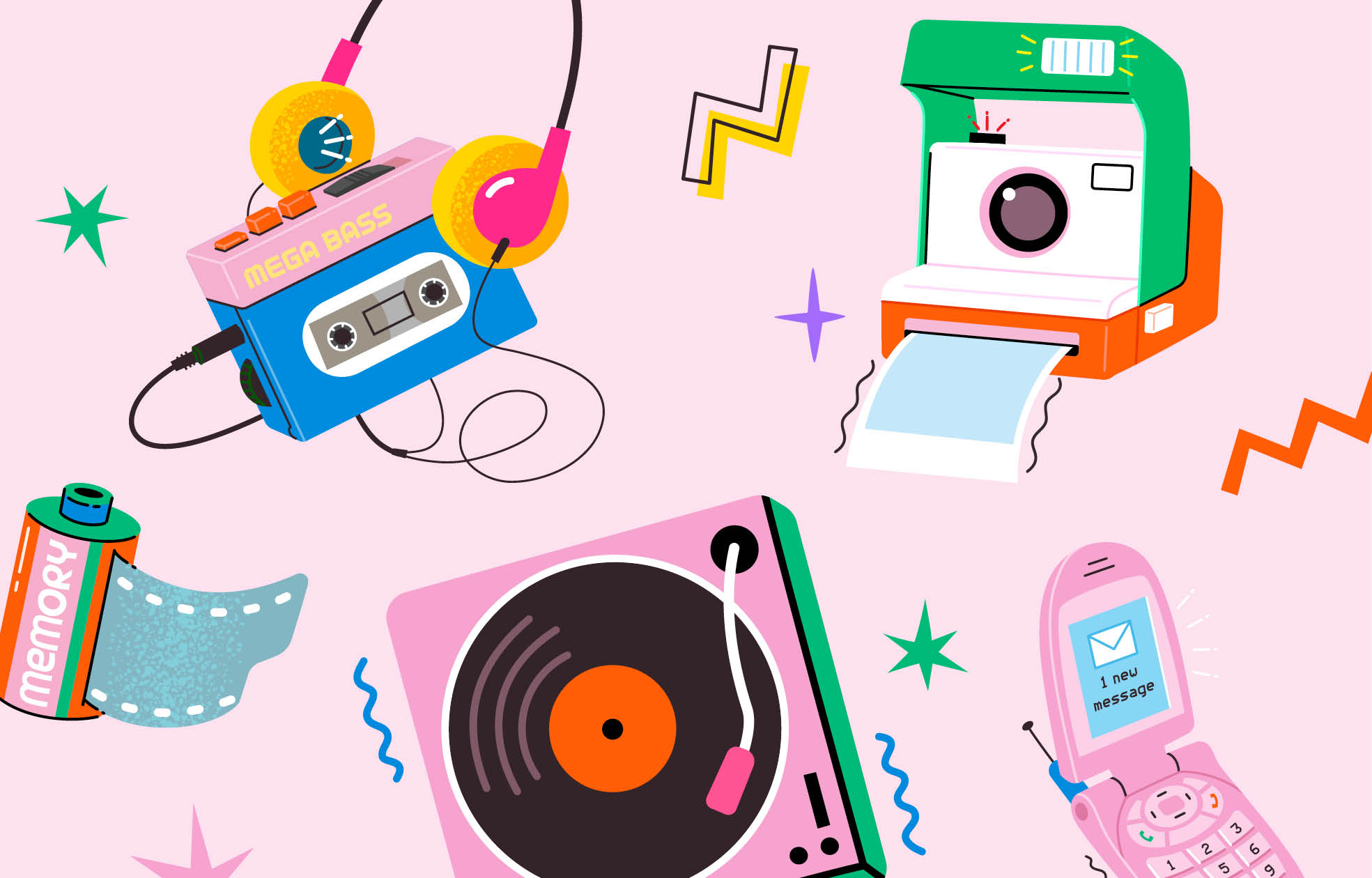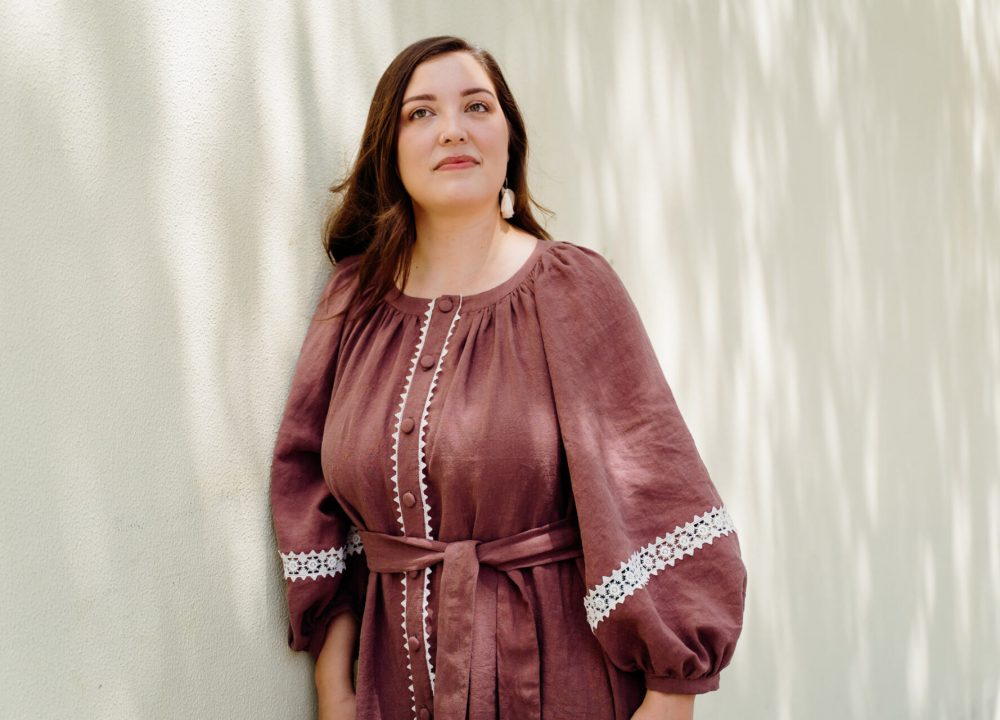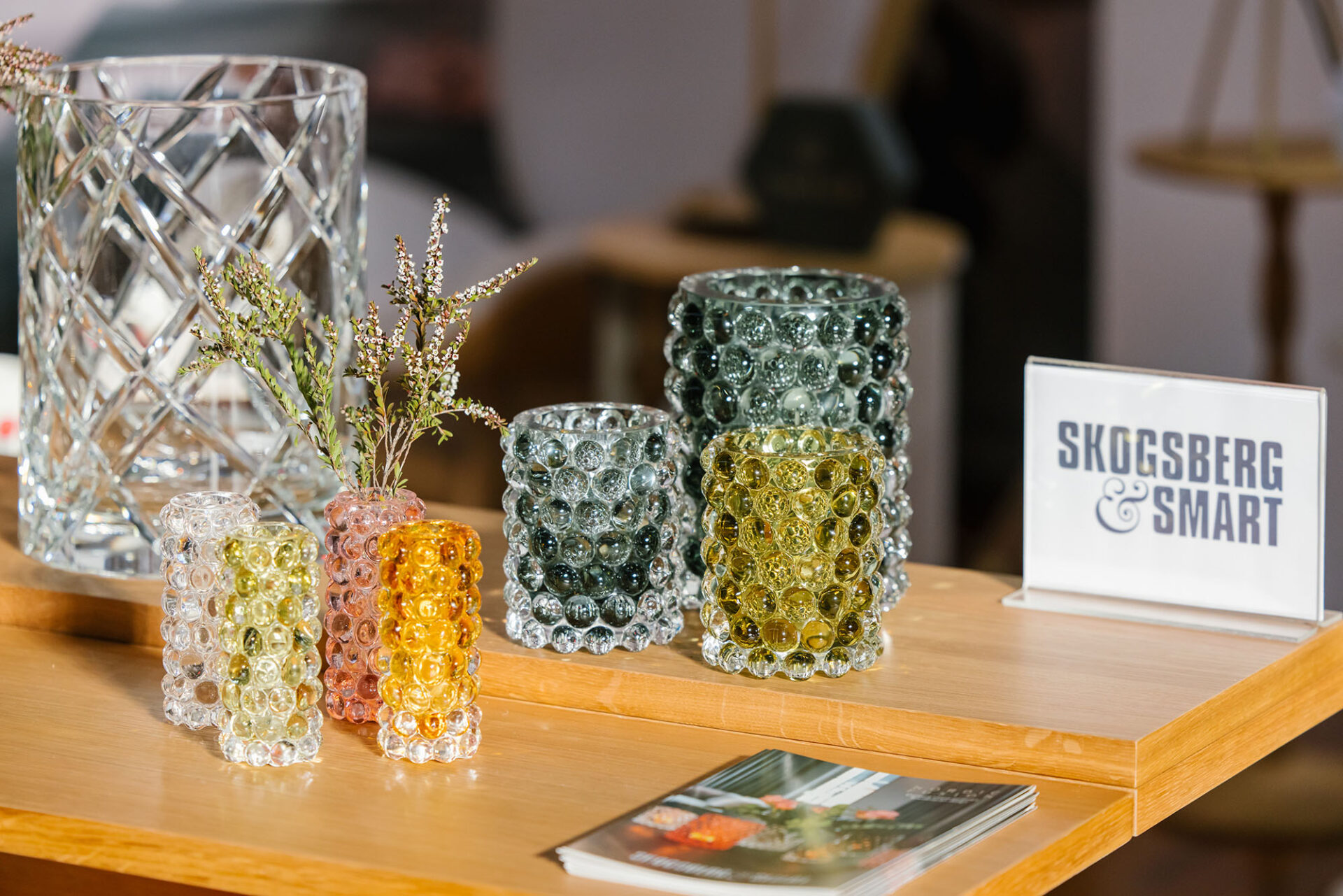THE LAST WORD: LEE CROCKFORD

- Words by Peppermint
Today is R U OK Day – the national suicide prevention day that urges us all to ask the people around us that one little question: how are you feeling? By reaching out to others you can help make a difference and even save a life. That’s a message Lee Crockford – a non-profit founder and men’s mental health activist who created Spur Projects and How is Australia Feeling – is passionate about spreading. He wrote about the importance of educating people about mental health and having honest conversations in Peppermint Issue 31…
I’d like to take this opportunity to congratulate you on successfully waking up this morning. Yes, I know that isn’t something that typically warrants congratulations – it doesn’t seem like a big achievement. But it is. There are seven Australians who didn’t wake up today. Yesterday, they reached a point in their life where they believed it was a better option for them to suicide than to see another day. Another seven Aussies will make the same decision today. And tomorrow. And every other day this year. Over 2500 people will have taken their own lives by the time this year comes to a close. Eighty percent of these people will be male.
If you’re an Aussie male between the ages of 14 to 44, the largest threat to your life is yourself
Let’s face it – Australia can be a pretty dangerous place: it’s home to most of the world’s deadliest animals, some of the highest levels of alcohol consumption and the largest number of melanomas in the world. Yet, if you’re an Aussie male between the ages of 14 to 44, the largest threat to your life is yourself. In 2011 I helped co-found Spur Projects, a not-for-profit organisation with the mission to make it an easier option for men to take positive action than to suicide. We’re not a front-line or counselling service, rather, we’re interested in how we can give men the resources, tools and language about mental health at a time in their life when things are ‘OK’ or ‘not too bad’, so that when those tough times come along (and they will come), they can take action sooner.
In order to reduce suicide as a community, there are a few key things we all need to understand. Mental health exists across a spectrum. When we think about physical health, we instantly appreciate how broad that is: on one end are menial issues like paper cuts, right through to serious terminal conditions. Yet, when we talk about mental health, that spectrum is often reduced to an almost a ‘yes/no’ option of being either mentally healthy or not; there’s not the same level of appreciation of how wide that spectrum is. At one end we have serious mental illnesses like severe depression, psychopathy, and other conditions, and at the other end is something as simple as a bad day or a bit of a rough patch. If someone has a minor physical injury, we put some Betadine and a bandaid on it to ensure it doesn’t become infected. As a country we need to be better at doing the same thing with poor mental health – if a rough patch goes without being addressed it can become something far more severe. With one in five Australians experiencing poor mental health each year, it’s this early stage where support and action is critical.
The majority of the time, a suicide attempt is when someone’s in-built coping mechanisms are outweighed by their current circumstances
Suicide is an action. It’s important to note that suicide itself is not a mental illness – rather, it can be the result of poor mental health. The majority of the time, a suicide attempt is when someone’s in-built coping mechanisms are outweighed by their current circumstances. And although it’s true that for a slim minority, poor mental health or mental illness can be an ongoing or life-long challenge, for the vast majority of people it’s temporary. The simple act of each of us being there for someone who’s going through a tough time can literally save a life.
Men are emotionally complex. Men often get a bad rap for being ‘emotionally stunted’, and although some evidence exists to show we might not express ourselves as emotionally as women, these studies don’t explore how men are actually feeling inside. In 2014 we launched Australia’s largest real-time mental health survey which collected over 35,000 submissions. Over the course of seven days, we simply asked all participants to check in and log how they were feeling. The results between men and women were almost identical in every way. So although we might not be great at expressing how we’re feeling, we internally experience emotions as complexly as women.
Seven more Australians will take their own lives today. But by being there and supporting the people in our lives, we can all change that.
If anything in this article has been a trigger, please contact Lifeline on 13 11 14 or the Suicide Call Back Service 1300 659 467. For more information on R U OK Day and tips for helping out anyone you think might be struggling, visit the R U OK website.
To find out about Lee’s latest project #OLDMATE, which aims to have 100,000 people pledge to spend one hour per month with an elderly man in their community (as men aged 80+ suicide at a rate almost double any other age group in Australia), visit oldmate.spurprojects.org.
WORDS: LEE CROCKFORD. FIRST PUBLISHED IN THE SPRING 2016 ISSUE OF PEPPERMINT – AVAILABLE TO BUY HERE.
JOIN OUR MAILING LIST
Brighten up your inbox with our not-too-frequent emails featuring Peppermint-related news, events, competitions and more!
explore
More articles
Dreaming of a flowy, blousy dress with beautiful details to take you through sunny days and beyond? Same babe, same – so we designed it! The Daisy Dress offers a bounty of fun features and styling options which allow you…
It’s beginning to look a lot like Christmas…. Which means we are officially entering party season. Work parties, friend-dos, family get-togethers and then we’re straight…
Look, I don’t want to make anyone panic but IT’S DECEMBER!!! If you’re planning to give homemade gifts, you’re going to have to act fast. …
Hang out with us on Instagram
Wrap dress wardrobe malfunction? Not with the Peppermint Waratah Wrap Dress pattern!
Our number one complaint is wrap dresses flying open in the wind, leaving you clutching a handful of skirt in your paw to avoid a public indecency offence. So we designed the Waratah to make sure this never happens. 🌪️
And yes, you could say we had a lot of fun on this shoot! 😆
MODELS/SEWISTS: @Melt.Stitches, @KatieMakesADress @Tricky.Pockets
Head to the link in bio for the #PeppermintWaratahWrapDress 🪡
#PeppermintPatterns #SewingPattern #MeMade #WrapDress

Secret pjs all day everyday!
How sweet is this version of our Samford Set pattern - created in collab with Lindsey of @SewToGrow 😍
From @Claire.Creates.Clothes:
🟤🟣🟢 Colour spot blocking pregnancy friendly set 🟢🟣🟤
I wanted some #secretpyjamas that I can wear on the couch when I’m pregnant and after for breastfeeding, with a top that I can wear out of the house. Welcome the #PeppermintSamfordSet
I made the Samford set top in a size F, one size up from my current bust and it’s the perfect amount of room for my expanding tummy, and will hopefully not be crazy oversized after pregnancy. I used a spotted linen that used to be considered good fabric, blocked with a organic linen sheet that was gifted to me for the sole purpose of being fabric by the lovely @heather_steenholdt
The top came together super quickly and has already had lots of wear - couch, dinner and work ☑️ I even attached the buttons within a week of starting the project, who am I?!
I already had the shorts in the rust linen but never wear them because I don’t like the length or shape at all - they were a pants pattern that I just made shorter. So I cut them to have an inseam of 2.5” and added a 1.5 length ruffle cut at 3” in the contrast spot linen and love them so much more already. Although the shorts will now just be reserved for in house.
I’ve already planned 2 more Samford sets, but will size down to get more post pregnancy wear. And will tackle the pants!
Special thanks to Laura at @peppermintmagazine for sending me the Samford set instructions, you motivated me to put the buttons on before the baby actually arrives! 😁
Pattern: @PeppermintMagazine Samford set top
Size: F
Fabric: Linens
#PeppermintPatterns #PyjamasAllDay

“We are in unprecedented times in the United States, at least in terms of having a government who openly and unabashedly disparages, rejects and causes harm to trans folks and other marginalised groups, including immigrants. So my team decided I should make a piece of art that included the words ‘You Belong Here’ that people could hang in their homes, and this piece was born.” @LisaCongdon 💕
These words were spoken by Lisa in our latest issue, and they are now more relevant than ever. Our latest issue is full of creativity, inclusivity and belonging. Our cover is the front door, welcoming you into our house of hope. You are welcome. You are valued. Take a seat at our table.
YOU BELONG HERE. 🫶
Issue 64 cover artwork by @LisaCongdon
At newsagents and stockists now.
#PeppermintMagazine #EqualRights #LGBTQI+ #Equality #YouBelong

As issue 64’s gorgeous cover artwork by artist @LisaCongdon proudly proclaims: you belong here. Yet for trans and non-binary people, acceptance still remains hard won – and increasingly under threat.
In our latest issue, we spoke to actress and transgender rights advocate @GeorgieStone, multi-hyphenate life coach, pilates and meditation teacher, diversity educator and runway model @RudiLandmann, artist and seven-time Archibald finalist Kim Leutwyler (@CarlosBob) and multidisciplinary artist Sunday Jemmott of @SundaysArtClub about their wins and worries – and why belonging matters deeply.
Read more from our ‘Transforming the Narrative’ feature in issue 64, at newsagents and stockists now!
Photos: @NickCog, @KateLukePhotography for @DangerousFemales, Kim Leutwyler, @RissVisualStudio
#PeppermintMagazine #YouBelong #TransLivesMatter #NonBinary #HumanRights

Who’s going to the sold out Liberty Fabrics Showcase in Brisbane or Melbourne? 🙋♀️
To say we’re excited is an understatement! Maybe we’re biased because our lovely Laura (Sewing Manager) is walking in the fashion parade along with many other incredible sewists in our community, but also - there’s SO many good things: retail stalls featuring exclusive products, rare finds and all things @LibertyFabrics, and sneak peeks at brand-new quilting and fashion collections, including the Liberty Fabrics Spring/Summer ‘Floral Rebellion’ collection.
Also - Liberty legends Mary-Ann Dunkley (Head of Design) and Anna Buruma (ex-Head of Archive) are flying in from London especially!
Keep an eye on our socials this weekend for BTS! 🌸🌼🌺
Brisbane 7/2/26
Melb 14/2/26
From @Laura_The_Maker:
If you know me irl then you probably know that I only do one take for my reels so enjoy this vid of me saying thousands of words about an exciting collaboration I’m participating in for 2026!
Thanks to the teams @2GreenZebras @Regent_Street_Fabrics and @StyleArc for including me on the runway. I absolutely can’t wait!
Obviously I’ll be hoping for enough scrap fabric to make some kind of accessories…
#libertyfabrics #libertyfabricsshowcase

🌻 The Paddington 🌻
This is a much-loved staple, created for Issue 50 in 2021. We love seeing the #PeppermintPaddingtonTop continually popping up in our feeds!
How stunning is our model Elon MelaninGoddessEfon – she told us it was one of the first times she had been asked to come to a shoot with her natural hair. 🌻
We worked with South African patternmaker Sarah Steenkamp of @FrenchNavyNow_ to create this wardrobe essential – the perfect puff-sleeve blouse. Raglan sleeves make it the ultimate beginner sew, plus the gorgeous back buttons let you add your own personal twist.
Pattern via the link in bio! 🪡
Photos: @KelleySheenan
Fabric: @Spoonflower
Model: MelaninGoddessEfon


















